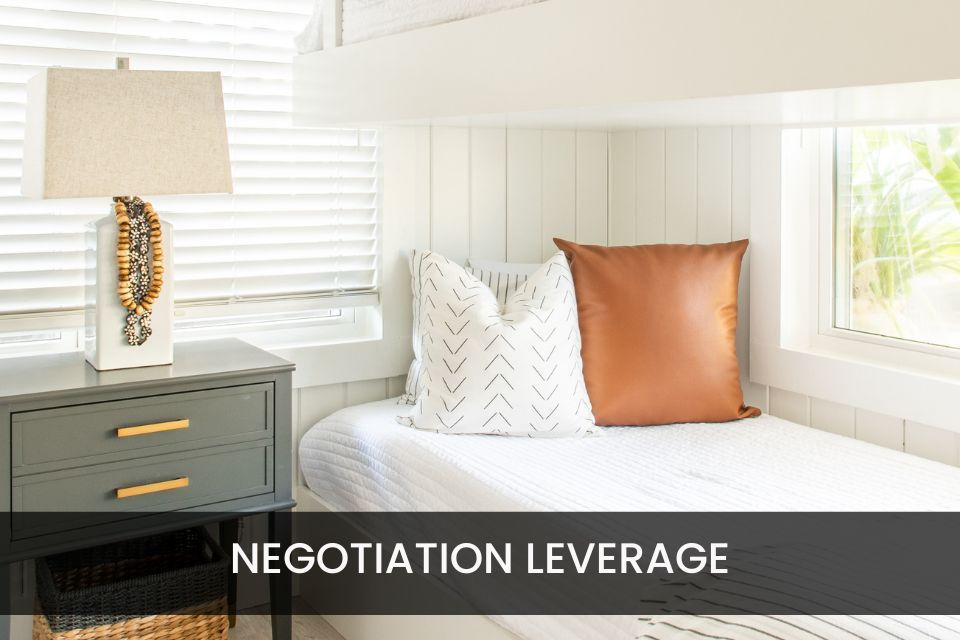Make the Best of Open Homes
Open House Do's and Dont's for Buyers

How to Make the Most of Open Houses as a Buyer
Attending an open house is a fantastic way for homebuyers to get a first-hand look at properties
in person. It’s a chance to explore the home, ask questions, and get a feel for the space that
online listings simply can’t provide. But for many buyers, open houses can be overwhelming,
especially when there are multiple properties to see or the competition feels fierce.
To make the most of an open house, it’s important to be prepared and know how to evaluate
each property effectively. This isn’t just about browsing casually—it’s about gathering key
information that will help you make an informed decision. In this blog post, we’ll cover some
essential strategies and tips for navigating open houses like a pro, ensuring you can assess
each property thoroughly and find the perfect home for your needs.
Why Open Houses Are a Valuable Tool for Homebuyers
Open houses provide an opportunity for buyers to see a property in person and experience the
layout, feel, and condition of the home. While photos and descriptions can offer a glimpse,
nothing beats walking through the space yourself. Open houses allow you to:
● Get a Real Feel for the Home: You can assess the size of rooms, the flow of the space,
and the overall condition of the property.
● Ask Direct Questions: It’s an opportunity to talk to the listing agent, ask about the
home’s history, and get clarification on any details.
● Discover Hidden Details: Sometimes, the listing doesn’t mention important aspects like
noise levels, the neighborhood vibe, or the condition of appliances—things you can only
assess in person.
However, open houses can also be a bit of a whirlwind. You might feel rushed, or the house may
be crowded with other potential buyers. That’s why knowing how to make the most of the
experience is key.
1. Do Your Homework Before the Open House
Research the Neighborhood
Before attending an open house, do a bit of background research about the neighborhood. The
home’s surroundings are just as important as the house itself, so it’s worth getting a sense of
what the area offers. Consider:
● Amenities: Are there schools, parks, grocery stores, or restaurants nearby?
● Safety: Check crime rates or ask the listing agent about the safety of the area.
● Future Developments: Are there new construction projects underway that could change
the neighborhood’s character?
Being well-informed about the neighborhood allows you to better evaluate the home’s location
and whether it fits your lifestyle.
Review the Listing Details
Make sure you’ve thoroughly read through the property listing before the open house. Look at
key details such as the asking price, square footage, number of bedrooms and bathrooms, and
any special features or recent upgrades. This helps you focus on specific areas during your visit
and ask relevant questions. If possible, compare the home to similar properties in the area to
understand if it’s priced competitively.
2. Arrive Early and Take Your Time
Arrive Early to Get the Best Experience
While arriving early to an open house may seem simple, it offers several advantages:
● Less Crowded: Open houses can get busy, especially for desirable properties. Arriving
early allows you to avoid the crowd and gives you more time to explore the home without
feeling rushed.
● Better Opportunity to Ask Questions: With fewer people around, the listing agent will
have more time to speak with you and answer any questions you may have about the
home, its history, or any issues you might be concerned about.
Take Your Time to Explore
Don’t rush through the open house. Take your time to walk through each room and evaluate it
carefully. Make a note of features you like, potential concerns, and anything that stands
out—both positive and negative.
When you’re in the home, consider these questions:
● Do the rooms feel spacious and functional? Think about how your furniture will fit and
if the space meets your needs.
● What is the condition of the home? Are there signs of wear and tear, such as cracks
in the walls or water stains? Are the appliances, plumbing, and electrical systems in
good working order?
● Is there enough natural light? Pay attention to how much natural light comes into the
home, and whether the layout feels bright and open.
3. Ask the Right Questions
Don’t Be Afraid to Ask Questions
During an open house, the listing agent is there to provide information and answer your
questions. Take advantage of this opportunity to learn more about the property. Some important
questions to ask include:
● Why is the home for sale? Understanding the seller’s motivation can help you gauge
whether the price is negotiable or if there are any potential issues with the home.
● How long has the property been on the market? If the house has been sitting for a
while, it could indicate that it’s overpriced or there are concerns buyers have identified.
● Have there been any recent renovations or repairs? Understanding the work that has
been done on the property can give you an idea of its value and condition.
● What are the average utility costs? This will help you gauge the long-term cost of
living in the home.
● Is there an HOA (Homeowners Association)? If the home is part of an HOA, ask
about fees, rules, and restrictions that may affect your use of the property.
The answers to these questions can give you a deeper understanding of the home’s true value
and whether it fits your needs.
4. Take Notes and Photos
Keep Track of the Homes You Visit
It’s easy to forget key details after visiting multiple properties in one day. Take notes during the
open house to keep track of what you liked or didn’t like about each home. Write down important
features, impressions, and anything else that stands out. This will make it easier to compare
properties later on.
Take Photos (With Permission)
If allowed, take photos during the open house. This can help you remember the details and
layout of the home, especially when you’re viewing several properties. Photos can also be
helpful if you need to reference specific areas later, whether for comparison or to discuss with
your agent.
5. Evaluate the Property’s Potential
Look Beyond the Cosmetics
While a fresh coat of paint or new carpeting can make a home more appealing, focus on the
home’s underlying value. For example:
● Structural Integrity: Are there any signs of foundation issues or water damage? These
problems can be costly to fix and could impact the overall value of the home.
● Upgrade Potential: Consider whether the home has potential for future upgrades or
customization. A home that’s not perfect could still be a great option if it offers room for
improvement.
● Space and Layout: Think about how the space fits your needs. Does the layout work for
you, or would you need to make major changes to make it livable?
Look past surface-level cosmetic changes and focus on the things that will affect the home’s
long-term value.
6. Be Prepared to Move Quickly
Understand the Market and Be Ready to Act
In today’s competitive real estate market, desirable homes can sell quickly. If you find a home
you like, be prepared to make an offer. Talk with your agent beforehand about the current
market conditions, and get pre-approved for a mortgage to speed up the process if you need to
act fast.
If you’re serious about the home, don’t wait too long to make an offer, as you could lose out to
other buyers. Having your finances in order and being ready to move quickly can give you a
competitive advantage.
Conclusion: Maximize Your Open House Experience
Open houses are a valuable tool for homebuyers, offering the chance to get an inside look at a
property before making a decision. To make the most of the experience, be prepared with
research, ask the right questions, take your time to evaluate the home, and keep track of your
thoughts and impressions. With these strategies in mind, you can confidently navigate open
houses and make informed decisions that will help you find your perfect home.
If you’re currently in the market for a home, use open houses as an opportunity to explore
properties and gather key information. Happy house hunting!
Your Realtor,
Jill Springer










